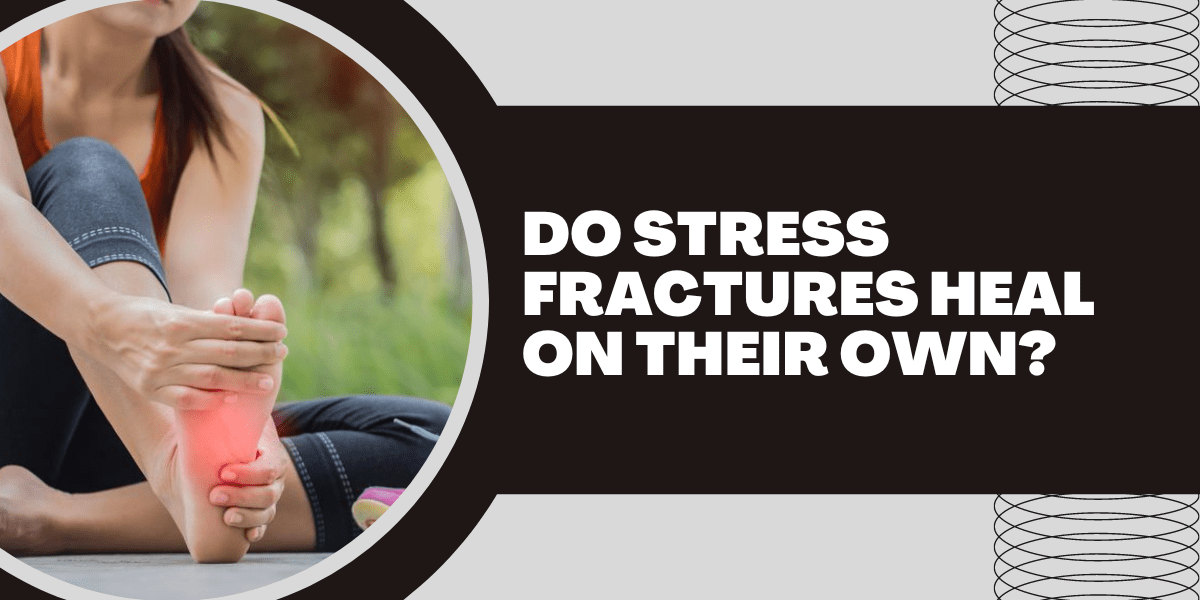
Stress fractures may not seem like a big deal, but if you ignore them, they can lead to severe problems down the road. A stress fracture is a crack in a bone that occurs due to repetitive stress or overuse. The most common type of stress fracture occurs in the bones of the foot or lower leg.
While stress fractures are usually not serious, if left untreated, they can become much worse. In severe cases, stress fractures can lead to complete breaks in the bone (known as “breaks”), which will require surgery to repair. Additionally, ignoring a stress fracture can also lead to chronic pain and dysfunction in the affected area. If you think you may have a stress fracture, it’s important to see a doctor as soon as possible.
What Causes Stress Fractures?
There are two main types of stress fractures: those caused by overuse and those caused by trauma. Overuse injuries occur when the bone is repeatedly exposed to impact or weight-bearing activity, such as running or jumping. This type of stress fracture usually happens in the lower legs or feet. Traumatic injuries, on the other hand, are usually the result of a single high-impact event, such as falling off a bike or being hit by a ball. These fractures usually occur in the upper legs, ribs, or arms.
Stress fractures are more common in athletes because they put their bodies under immense pressure on a regular basis. However, anyone can get a stress fracture.
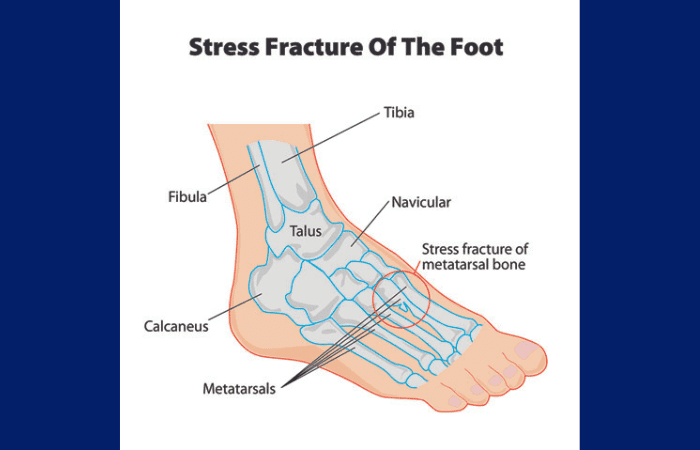
Other risk factors include having weak bones, being female (due to hormonal changes that make bones more fragile), being over the age of 50 (due to natural bone loss), and using certain medications (such as corticosteroids).

There are several risk factors that can increase your chances of developing a stress fracture. These include:
- Excessive physical activity — including sports that involve running or jumping on hard surfaces — puts added stress on bones and can lead to a stress fracture. Women who participate in high-impact aerobics might be especially vulnerable because they tend to have lower bone density than men. In fact, about half of all diagnosed stress fractures each year occur in female athletes ages 15 to 20 years. Anorexia nervosa also can cause brittle bones and make you more susceptible to stress fractures.
- Poor nutrition can prevent your body from getting enough calcium and vitamin D, two essential nutrients for strong bones. If you’re not eating a well-balanced diet, you might not be getting enough of these important nutrients. Poor nutrition is often seen as a contributing factor in runners who experience recurrent stress fractures.
- Smoking cigarettes
- Amenorrhea (lack of menstrual periods) associated with anorexia nervosa or heavy exercise training
- Use of steroid medications, such as prednisone
- Previous history of stress fractures
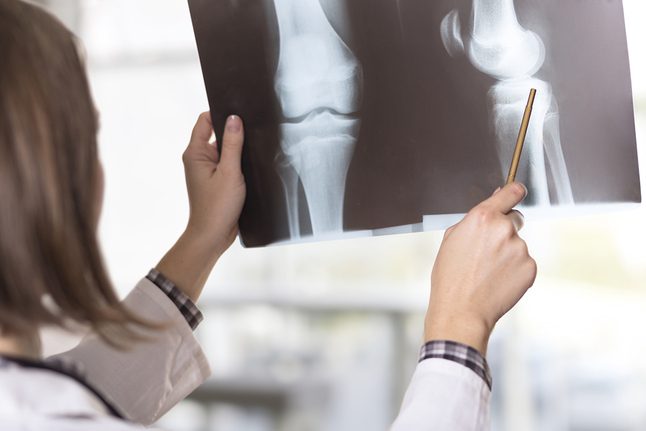
Symptoms of Stress Fractures
1. Pain That Gets Worse with Activity
One of the first signs of a stress fracture is pain that gets worse with activity. If you notice that your pain increases when you walk or run, it’s important to see a doctor. With rest and proper treatment, the pain should go away.
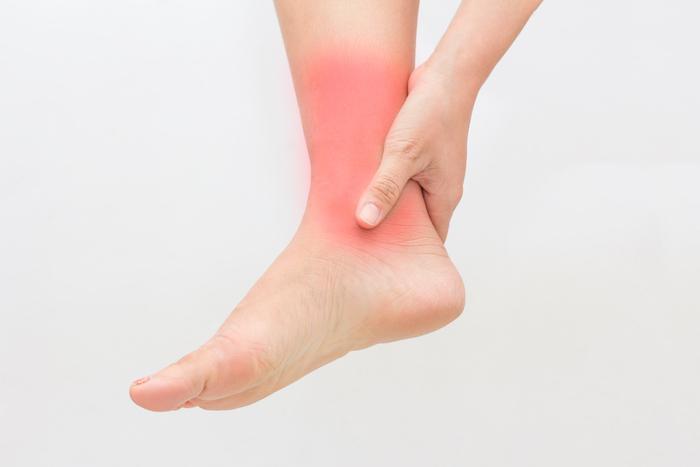
2. Swelling
Another sign of a stress fracture is swelling near the injured area. This is caused by inflammation and can be accompanied by tenderness and bruising.

3. Difficulty Bearing Weight
If you have a stress fracture, you may have difficulty bearing weight on the injured area. This means that walking or running may become painful or difficult. This is due to the fact that the bone isn’t able to share the weight evenly.
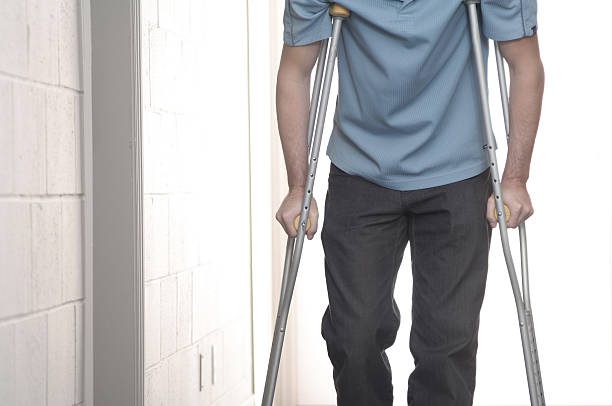
4. Stiffness
In addition to pain, you may also experience stiffness near the injured area. This is because the injury causes inflammation in the surrounding muscles, tendons, and ligaments.
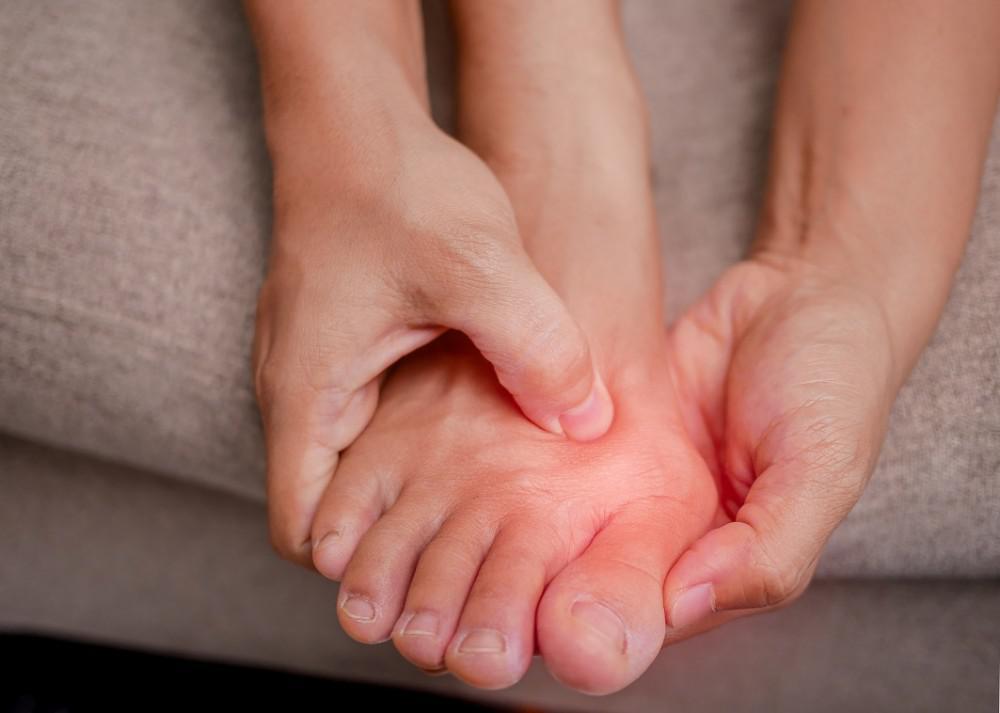
How Can You Avoid Getting Stress Fractures?
Stress fractures most often happen in people who participate in high-impact activities, such as running or jumping. However, they can also happen in people who do non-impact activities, such as walking, if they don’t take proper precautions. Here are some tips on how to avoid getting stress fractures.

Wear Proper Footwear
One of the best ways to avoid getting stress fractures is to make sure you’re wearing proper footwear. This is especially important if you participate in high-impact activities. Look for shoes that have good arch support and are cushioned to help absorb shock. If you have flat feet or high arches, you may need to buy special inserts to help support your feet. Also, make sure you replace your shoes regularly. Most shoes last for about 300-500 miles before they need to be replaced.
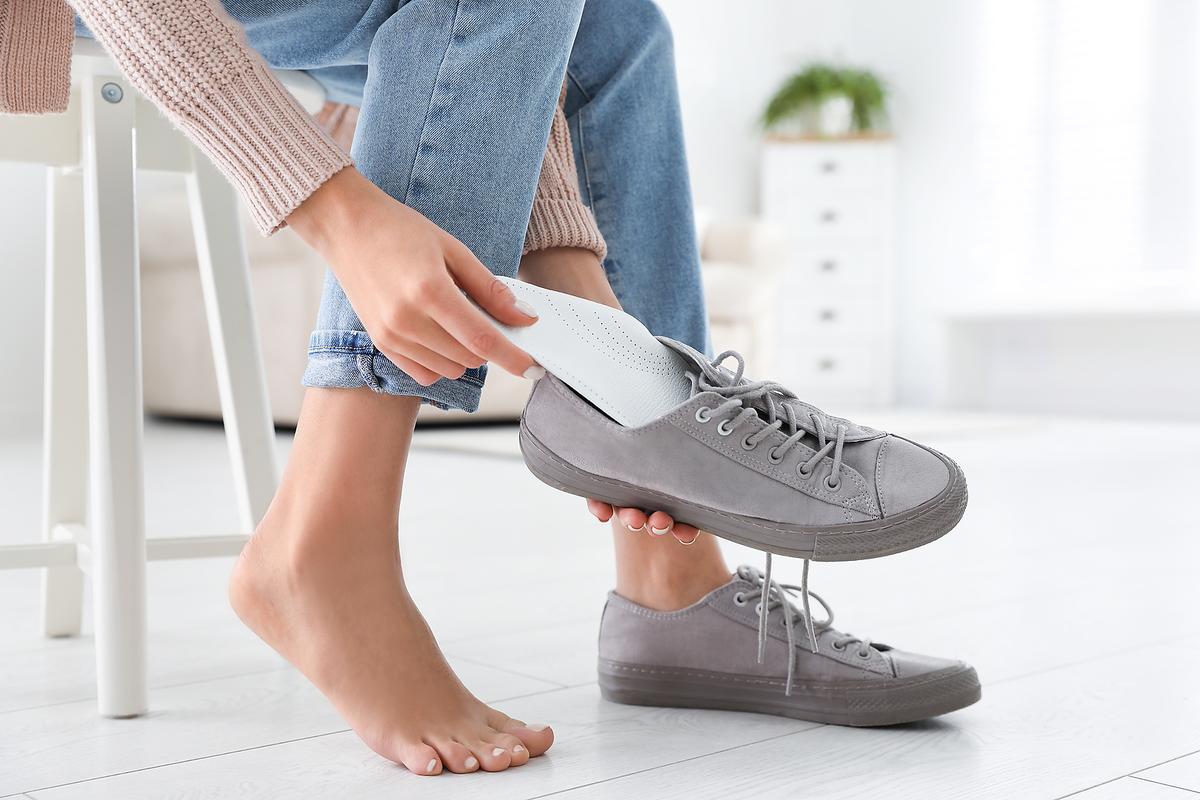
Do Low-Impact Activities
If you’re at risk for stress fractures or if you’ve already had one, it’s important to limit your high-impact activities and do low-impact activities instead. Some examples of low-impact activities include swimming, biking, and elliptical training. These activities put less stress on your bones than high-impact activities like running or playing basketball. If you do want to participate in high-impact activities, make sure you build up slowly and don’t increase your mileage or intensity by more than 10% per week.

Get Enough Calcium
Calcium is an essential nutrient for strong bones. If you don’t get enough calcium from the foods you eat, your body will start to break down bone tissue to get the calcium it needs. This will make your bones weak and more likely to break under stress. The best way to ensure that you’re getting enough calcium is to eat a healthy diet that includes calcium-rich foods like milk, yogurt, cheese, leafy green vegetables, and fortified cereals and juices. You should also consider taking a supplement if you don’t think you’re getting enough calcium from food alone.

So, how long does it take for a stress fracture to heal?
The answer, unfortunately, isn’t quite so simple as there are many factors that contribute to the healing process, such as age, activity level, type of bone involved, location of the injury, etc. However, in general, most stress fractures take anywhere from four to eight weeks to heal completely. Once the bone has healed, and you are given the green light from your doctor, you can slowly start incorporating impact activities back into your routine with permission from your doctor.
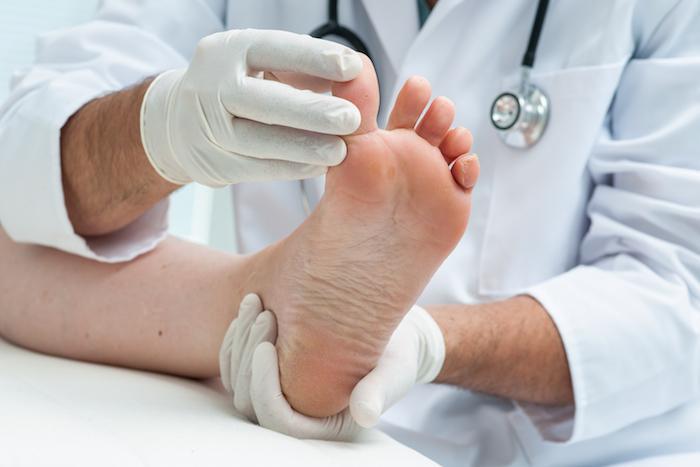
5 Home Remedies for Stress Fractures
#1 Eat foods that contain calcium and vitamin D
Calcium is essential for bones. Vitamin D helps your body absorb calcium. So, it’s important to eat foods that contain both of these nutrients if you have a stress fracture. Good choices include milk, yogurt, cheese, and leafy green vegetables. You can also take supplements if you need to.
#2 Get enough rest
It’s important to give your body time to heal when you have a stress fracture. This means getting enough rest. You don’t have to stay in bed all day, but you should avoid any activities that put a strain on your foot or leg. This includes running, jumping, and high-impact aerobics classes. Swimming and biking are good alternatives because they put less pressure on the bones.
#3 Apply ice
Applying ice to the area can help reduce swelling and pain. Ice should be applied for 20 minutes at a time, several times a day. Be sure to wrap the ice in a towel so it doesn’t come into direct contact with your skin and cause an ice burn.
#4 Take over-the-counter pain medication
There are many different types of over-the-counter pain medication that can help with the pain associated with a stress fracture. These include acetaminophen (Tylenol) and ibuprofen (Advil). Be sure to follow the directions on the package carefully, so you don’t accidentally take too much and end up with unwanted side effects like an upset stomach or dizziness.”
#5 Use arch supports
If you have flat feet or low arches, this can put extra strain on your feet and increase your risk of developing a stress fracture. Wearing arch supports in your shoes can help take some of the pressure off of your feet and prevent further injury.

Stress Fracture Prevention
There are several things you can do to prevent stress fractures, including:
Wearing proper footwear – Wearing shoes that fit well and provide good support can help prevent stress fractures. If you have flat feet or high arches, you may need special insoles or arch supports.
Stretching – Stretching before exercise can help prevent stress fractures by loosening the muscles and tendons around the bones. This puts less pressure on the bones and reduces your risk of injury.
Strengthening – Strengthening the muscles around the bones can also help prevent stress fractures by taking some of the pressure off of the bones. This can be done through weight-bearing exercises such as walking, running, or jumping rope. However, it’s important not to overdo it—exercising too much can actually lead to stress fractures. So be sure to listen to your body and take breaks when you need them.
Eating a healthy diet – Eating a diet rich in calcium and vitamin D can help keep your bones strong and prevent stress fractures. Foods that are high in calcium include dairy products, leafy green vegetables, and almonds. You can get vitamin D from exposure to sunlight or from fatty fish such as salmon and tuna. You can also take supplements if needed.

Final Thoughts
Stress fractures are a common injury, especially in athletes. However, they can occur in anyone who puts repetitive stress on their bones. While they can be painful, most stress fractures will heal on their own with rest and home remedies. There are also things you can do to prevent stress fractures from happening in the first place. If you think you have a stress fracture, see your doctor to be sure. They can help you come up with a treatment plan and get you on the road to recovery.
Frequently Asked Questions (FAQs)
How long do stress fractures take to heal?
The average time it takes for a stress fracture to mend is six to eight weeks because the body needs that long to create new bone cells to fill in the small breaks in the bone.
What happens if a stress fracture goes untreated?
A stress fracture could worsen if it is not addressed. It may require surgery, heal incorrectly, cause arthritis, or both. Do not ignore the pain in any way. It's crucial to visit your doctor as soon as you begin experiencing pain because ignoring it could result in major issues down the road.
How painful is a stress fracture in the foot?
Most of the time, mild pain is the first sign of a stress fracture. It may be so mild, in fact, that you may brush it off as a temporary annoyance. Stress fractures in the feet usually happen in the bones that support your weight. When you walk, run, or jump, these bones take the stress that comes from doing the same thing over and over again.
Can you walk with a hairline fracture in your foot?
Yes. RICE, which stands for rest, ice, compression, and elevation, is often the first step in treating a hairline ankle fracture. You might be told to take painkillers like aspirin or ibuprofen that you can buy without a prescription. To make sure the bone heals properly, you may also need crutches or a cast.




